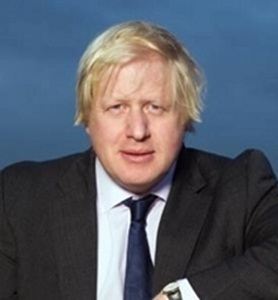Britain and the European Union on Thursday finalised a reworked Brexit deal, just hours before an EU summit that is expected to give it a seal of approval. Britain and the EU have now set the stage for Britain’s withdrawal from the 28-member European Union ahead of the 31 October timeline, but the deal still needs approval from parliament.

While parliament’s approval for the deal in uncertain, Prime Minister Boris Johnson is taking the accord to the skeptical parliamentarians for their approval on Saturday,
Johnson, who has pledged to take Britain out of the EU with or without an agreement, tweeted: "We've got a great new deal that takes back control - now Parliament should get Brexit done on Saturday."
We’ve got a great new deal that takes back control — now Parliament should get Brexit done on Saturday so we can move on to other priorities like the cost of living, the NHS, violent crime and our environment #GetBrexitDone #TakeBackControl — Boris Johnson (@BorisJohnson) October 17, 2019
Johnson’s “great” new Brexit deal still faced resistance from the Northern Irish Democratic Unionist Party (DUP) as he sought support for the deal. The DUP has expressed concerns that the Brexit deal could cut Northern Ireland off from Britain in customs and regulatory terms.
EU officials heaved a sigh of relief as the deal helped avoid an immediate crisis at the European Council summit, and European Commission President Jean-Claude Juncker recommended that the other 27 EU leaders endorse the deal.
"Where there is a will, there is a deal -- we have one! It's a fair and balanced agreement for the EU and the UK and it is testament to our commitment to find solutions," Juncker tweeted.
While the draft agreement ended more than four decades of Britain’s close economic and political ties with its neighbours, the agreement would still see the British-ruled province remain under EU customs and Value Added Tax (VAT) rules, and the DUP won’t support it.
The customs agreement, the so-called "Irish backstop", is intended to avoid a hard Brexit as Ireland and its British ruled parts still function as a united economy.
This is intended to prevent the return of a hard border with EU-member Ireland. But, it would, however, involve some customs and tax checks with the rest of the UK, which the DUP objects to.
Chief EU negotiator Michel Barnier, however, said: "We created a new and legally operative solution to avoid a hard border, and protect peace and stability on the island of Ireland," he said.
"It is a solution that works for the EU, for the UK and for people and businesses in Northern Ireland," he added.
Also, it is not clear how many of Johnson's Conservative MPs will back the deal, and if the opposition Labour could vote it down or press for a nationwide referendum to approve or reject it.
And, despite Brexit, EU leaders hope the summit will focus on the EU budget, admission of North Macedonia and Albania to the bloc, and the crisis in relations with Turkey.





















